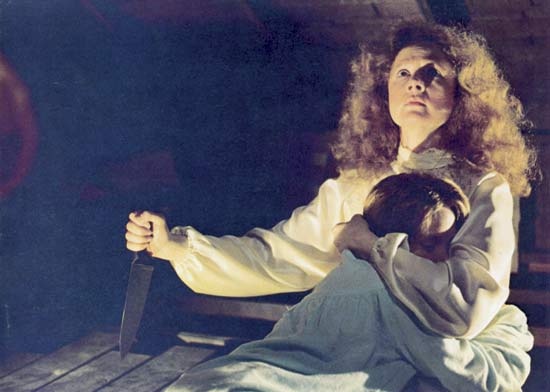De Palma, Brian
American director and screenwriter
in full Brian Russell De Palma
born Sept. 11, 1940, Newark, N.J., U.S.
American motion-picture director and screenwriter best noted for his usually stylish, often graphic horror-suspense films that draw heavily on the work of director Alfred Hitchcock (Hitchcock, Sir Alfred).
 De Palma became obsessed by movies during college, and, receiving his B.A. from Columbia University in New York City (1962), accepted a theatre fellowship at Sarah Lawrence College, Bronxville, N.Y. (M.A., 1964). While there he completed his first feature-length film, The Wedding Party (1964; released 1969). His first commercially successful film was the thriller Carrie (1976), based on Stephen King (King, Stephen)'s novel about an unpopular high school girl with telekinetic powers who gets even with her classmates. De Palma followed that film with other successful movies, including the suspense films Dressed to Kill (1980), Blow Out (1981), and Body Double (1984), each of which makes strong references to Hitchcock (Hitchcock, Sir Alfred). In the 1980s he also made the gangster movies Scarface (1983) and The Untouchables (1987) and the action film Casualties of War (1989). The most highly acclaimed of these was Scarface, which starred Al Pacino (Pacino, Al) as a Cuban immigrant who establishes himself as the head of a powerful Miami drug cartel. De Palma's subsequent movies include The Bonfire of the Vanities (1990), based on Tom Wolfe (Wolfe, Tom)'s novel; Mission: Impossible (1996), which starred Tom Cruise (Cruise, Tom); and Femme Fatale (2002), for which he also wrote the screenplay. De Palma also directed The Black Dahlia (2006), based on James Ellroy's novel, andRedacted (2007).
De Palma became obsessed by movies during college, and, receiving his B.A. from Columbia University in New York City (1962), accepted a theatre fellowship at Sarah Lawrence College, Bronxville, N.Y. (M.A., 1964). While there he completed his first feature-length film, The Wedding Party (1964; released 1969). His first commercially successful film was the thriller Carrie (1976), based on Stephen King (King, Stephen)'s novel about an unpopular high school girl with telekinetic powers who gets even with her classmates. De Palma followed that film with other successful movies, including the suspense films Dressed to Kill (1980), Blow Out (1981), and Body Double (1984), each of which makes strong references to Hitchcock (Hitchcock, Sir Alfred). In the 1980s he also made the gangster movies Scarface (1983) and The Untouchables (1987) and the action film Casualties of War (1989). The most highly acclaimed of these was Scarface, which starred Al Pacino (Pacino, Al) as a Cuban immigrant who establishes himself as the head of a powerful Miami drug cartel. De Palma's subsequent movies include The Bonfire of the Vanities (1990), based on Tom Wolfe (Wolfe, Tom)'s novel; Mission: Impossible (1996), which starred Tom Cruise (Cruise, Tom); and Femme Fatale (2002), for which he also wrote the screenplay. De Palma also directed The Black Dahlia (2006), based on James Ellroy's novel, andRedacted (2007).- Fischer, Ludwig
- Fischer-Tropsch reaction
- Fischer von Erlach, Johann Bernhard
- Fischhof, Adolf
- fiscus
- fish
- Fishburne, Laurence
- fisher
- Fisher, Alan
- Fisher Ames
- Fisher, Andrew
- Fisher, Bud
- Fisher, Clara
- Fisher, Dorothy Canfield
- Fisher, Herbert Albert Laurens
- Fisheries
- Fisher, Irving
- Fisher, John Arbuthnot Fisher, 1st Baron
- fisherman's ring
- Fisher, M.F.K.
- Fisher, Morris
- Fisher, Rudolph
- Fisher, Saint John
- Fisher, Sir Ronald Aylmer
- fishery